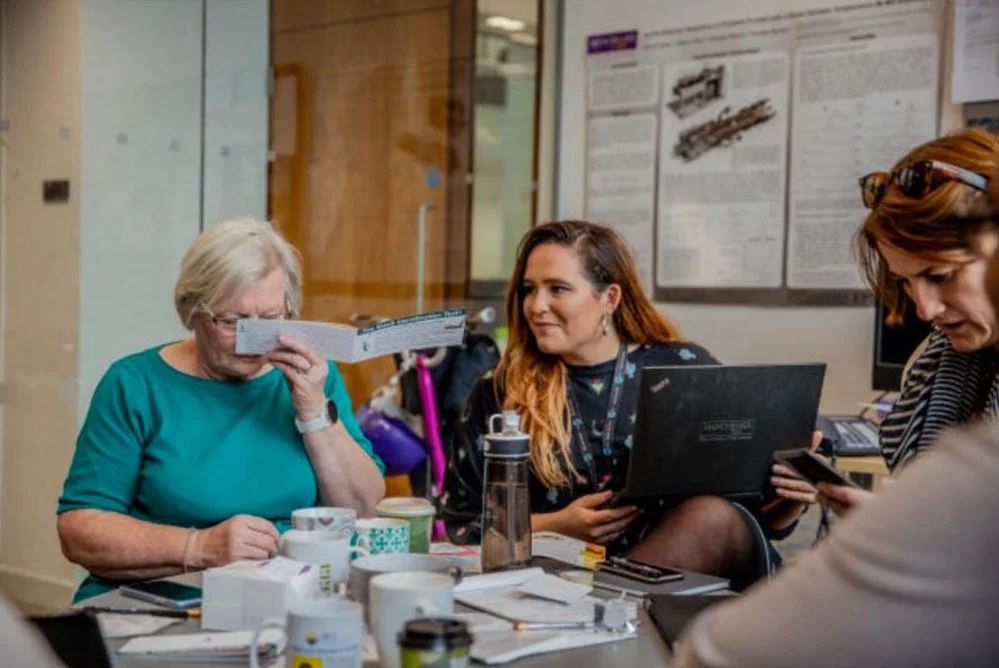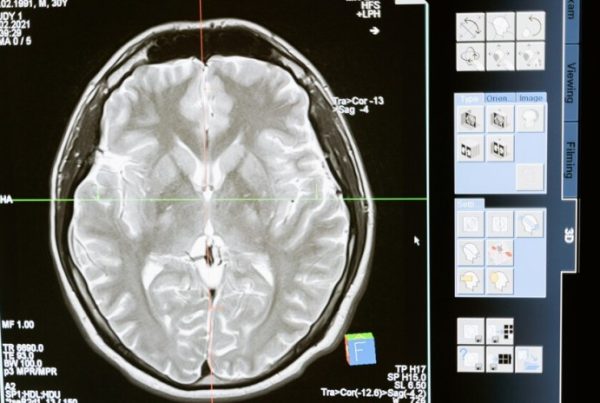Ten years after marrying her husband, Joy Milne noticed something odd: Her husband had taken on an “unpleasant” and “musty” odor, primarily around his shoulders and the back of his neck, she tells BBC News’s Elizabeth Quigley.
“I kept saying to him, ‘You’re not showering properly,’” Milne, a retired nurse from Perth, Scotland, says to Sky News. “And he became quite angry about it at first.”
As the years passed, the smell didn’t go away, and Milne began to notice her husband had gotten more moody. She took him to the doctor, and he was diagnosed with Parkinson’s disease.
Several years later, the couple joined a support group for Parkinson’s patients and families. When they entered the room, Milne noticed instantly the others had the same musty smell as her husband.
Milne, who has hereditary hyperosmia, or a heightened sense of smell, has worked with Parkinson’s disease doctors and researchers since her husband’s death in 2015. Now, a team of scientists from the University of Manchester in England, in tandem with Milne, say they’ve developed a simple skin swab test to detect the disease within about three minutes.
“This test has the potential to massively improve the diagnosis and management of people with Parkinson’s disease,” neurologist Monty Silverdale, the study’s clinical lead, tells EuroNews‘ Natalie Huet.
The findings, published last week in the Journal of the American Chemical Society, dig deeper into exactly what Milne can smell. The scientists found that people with Parkinson’s have certain lipids of high molecular weight in their sebum—an oily substance found on the skin—that are more active, per a statement. Sebum tends to collect in the upper back region, the same area where Milne noticed a strong change in her husband’s scent.
The new skin swab test collects this sebum from patients’ backs. Using mass spectrometry, a tool for identifying compounds using their weight, researchers say this test can detect the disease with 95 percent accuracy under laboratory conditions, according to the BBC.
The team sampled 79 people with Parkinson’s and 71 healthy individuals. They identified 500 compounds that are different between people with the disease and those without it, per the statement.
Parkinson’s disease is a nervous system disorder that can cause shaking, trouble sleeping, limb stiffness and mental and behavioral changes. The disease starts slowly and worsens over time. Around 10 million people worldwide are living with Parkinson’s, and about 60,000 Americans are diagnosed with the disease every year.
Currently, there is no cure for the disease, and doctors can only diagnose it by monitoring patients’ symptoms, per the BBC. But a test could make a big difference for those with Parkinson’s, James Jopling, the Scotland director of Parkinson’s UK, tells the publication.
“People have to wait months or years to be diagnosed, so the fact that you could get the treatment and support you need and that researchers could begin new treatments is incredibly important,” Jopling says to the BBC.
The swab test is still in the early phases of research and has yet to be tested outside of laboratory conditions, per PA Media.
“We are hoping within two years to be able to start to test people in the Manchester area,” says Perdita Barran, a chemist at the University of Manchester who led the research, to the BBC.
Source: Woman Who Can Smell Parkinson’s Helps Develop a Skin Swab Diagnostic Test













